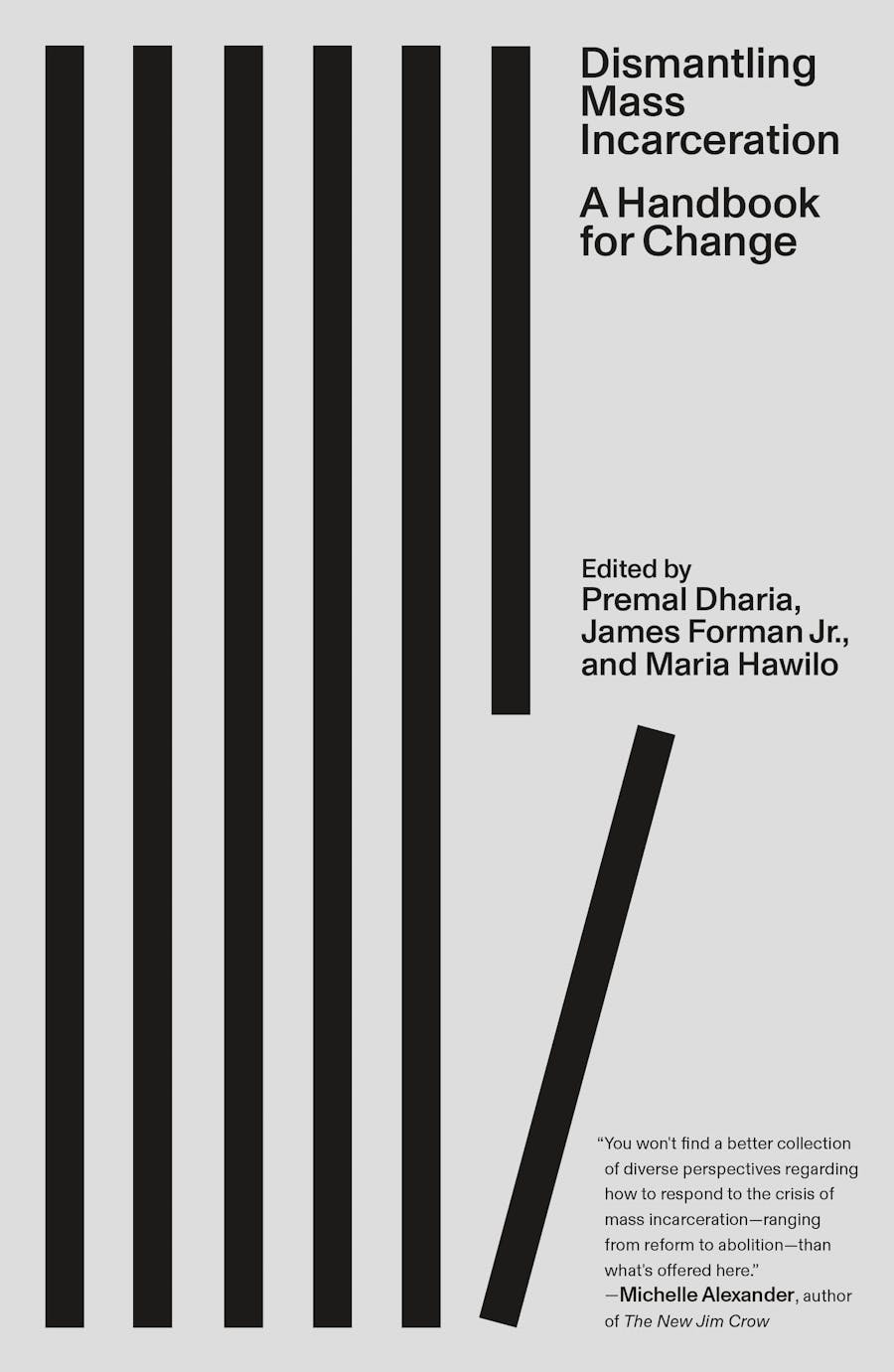The causes of mass incarceration are complex and varied, as James Forman, Jr., Premal Dharia, and Maria Hawilo acknowledge both in their forum essay here and in their forthcoming book, Dismantling Mass Incarceration. The draconian sentencing laws passed by legislatures, the charging and plea-bargaining decisions of prosecutors, and the sentencing decisions of judges all contribute to the devastating phenomenon of mass incarceration. Communities that are serious about dismantling mass incarceration should demand transformative change by officials from every branch of government—but, for many reasons, they should look to prosecutors first.
Prosecutors are the most powerful officials in the criminal legal system. They control the system through their charging and plea-bargaining decisions and have almost limitless discretion when making these decisions. The Supreme Court has repeatedly affirmed and sanctioned that power and discretion. A repeal of mandatory minimums and other harsh sentencing laws, partnered with more humane sentencing decisions by judges, would eventually help to reduce the prison and jail population. However, significant progress toward ending mass incarceration will not happen without a fundamental shift in the prosecution function. The progressive prosecution movement offers the best prospect for that necessary transformation.
Roundtable

This response essay is part of a roundtable about prosecutors inspired by the new collection Dismantling Mass Incarceration. Read the entire roundtable here.
When progressive prosecutors run for office, they promise to use their power and discretion to reduce the prison and jail population, end unwarranted racial disparities in the criminal legal system, and implement other practices and policies to make the system fairer. Although there has not been a comprehensive study of the work of all progressive prosecutors, there are prominent examples of progressive prosecutors who have implemented decarceral policies with meaningful, measureable results. Philadelphia district attorney Larry Krasner’s Accelerated Misdemeanor Program resulted in a 35 percent reduction in five-year reconviction rates and a 32 percent reduction in cases sentenced to jail or probation. Suffolk County district attorney Rachael Rollins’s policy that imposed a presumption of non-prosecution of nonviolent misdemeanors produced comparable results.
Data for Progress, a progressive think tank and polling firm, surveyed nineteen progressive prosecutors in 2021 with the goal of measuring their progress in fulfilling their campaign promises. The survey revealed that 95 percent of the prosecutors reported that their policies reduced the prison and jail population in their jurisdictions. The survey further noted that 80 percent of the prosecutors reported that they “do not prosecute low-level misdemeanor and felony drug offenses, particularly those related to marijuana (in states where the use of marijuana is still illegal)” as well as offenses “related to sex work, trespass where the underlying driver is homelessness, and minor traffic offenses.” All of the responding prosecutors expanded existing diversion programs or added new programs. Ninety-five percent of the prosecutors requested the release of individuals held on cash bail unless they posed a risk of flight or danger to the community or victim. This small survey is not proof that the progressive prosecution movement is a success, but it does serve as an example of how progressive prosecutors have helped to reduce the prison and jail population simply by exercising their power and discretion differently from their predecessors. These prosecutors didn’t transform the system, abolish prisons, or end mass incarceration, but they made progress. Fewer people were incarcerated, and fewer is better than the status quo.
Critics of progressive prosecutors who don’t think they are bringing about meaningful change should ask themselves why state legislatures, judges, and governors are attempting to remove these prosecutors or limit their power. The Georgia legislature passed a law that created a commission with the power to remove elected prosecutors who declined to prosecute certain laws, and the Pennsylvania legislature tried to impeach Larry Krasner for declining the prosecution of certain cases. An Illinois judge appointed a special prosecutor to investigate state attorney Kim Foxx’s lawful exercise of discretion in a high profile case. Florida governor Ron DeSantis removed two elected progressive prosecutors—Andrew Warren and Monique Worrell—because they declined the prosecution of certain cases. San Francisco district attorney Chesa Boudin was recalled, and there was a failed attempt to recall Los Angeles district attorney George Gascón. Both recall efforts were initiated by groups that opposed their efforts to reduce prison and jail populations in their jurisdictions. These recall efforts and the attacks from the legislative, judicial, and executive branches of government demonstrate that progressive prosecutors are effecting significant change in the criminal legal system. If they were not, there wouldn’t be such aggressive efforts to get rid of them or limit their power.
Decarceral thinkers and doers
Every week, Inquest aims to bring you insights from people thinking through and working for a world without mass incarceration.
Sign up for our newsletter for the latest.
Newsletter
Not all prosecutors who claim to be progressive are doing enough to dismantle mass incarceration. Those who renege on their campaign promises deserve to be criticized and voted out of office. Even those who are attempting to fulfill their promises sometimes have to be pushed. But it is unrealistic to expect change overnight. These prosecutors are trying to reverse decades of draconian policies and practices while facing attacks from police unions, judges, mayors, and others who are invested in maintaining the status quo.
As critics of the progressive prosecution movement have pointed out, all prosecutors do harm, even those who claim to be progressive. Progressive prosecutors decline some prosecutions and divert some cases out of the system, but they also lock up a lot of people and will continue to do so as long as the current criminal legal system exists. Nonetheless, critics of the progressive prosecution movement cannot credibly deny that progressive prosecutors do much less harm than traditional prosecutors. Less harm means fewer people in jails and prisons and fewer people with convictions, not to mention the lifesaving decisions of prosecutors who decline to seek the death penalty and seek the release of the wrongfully convicted and those who have served a substantial part of a lengthy sentence.
The criminal legal system is broken. Far too many people are locked up for far too long under inhumane conditions, and there are unwarranted racial disparities at every step of the process. Critics of the progressive prosecution movement who complain that these prosecutors are not doing enough seem to have an all-or-nothing approach. The many people who have either been diverted out of the system or released from prison as a result of decisions by progressive prosecutors would undoubtedly disagree with this approach. Some change is better than none, and progressive prosecutors play an important role in effecting that change.
Image: Martin Adams/Unsplash/Inquest

